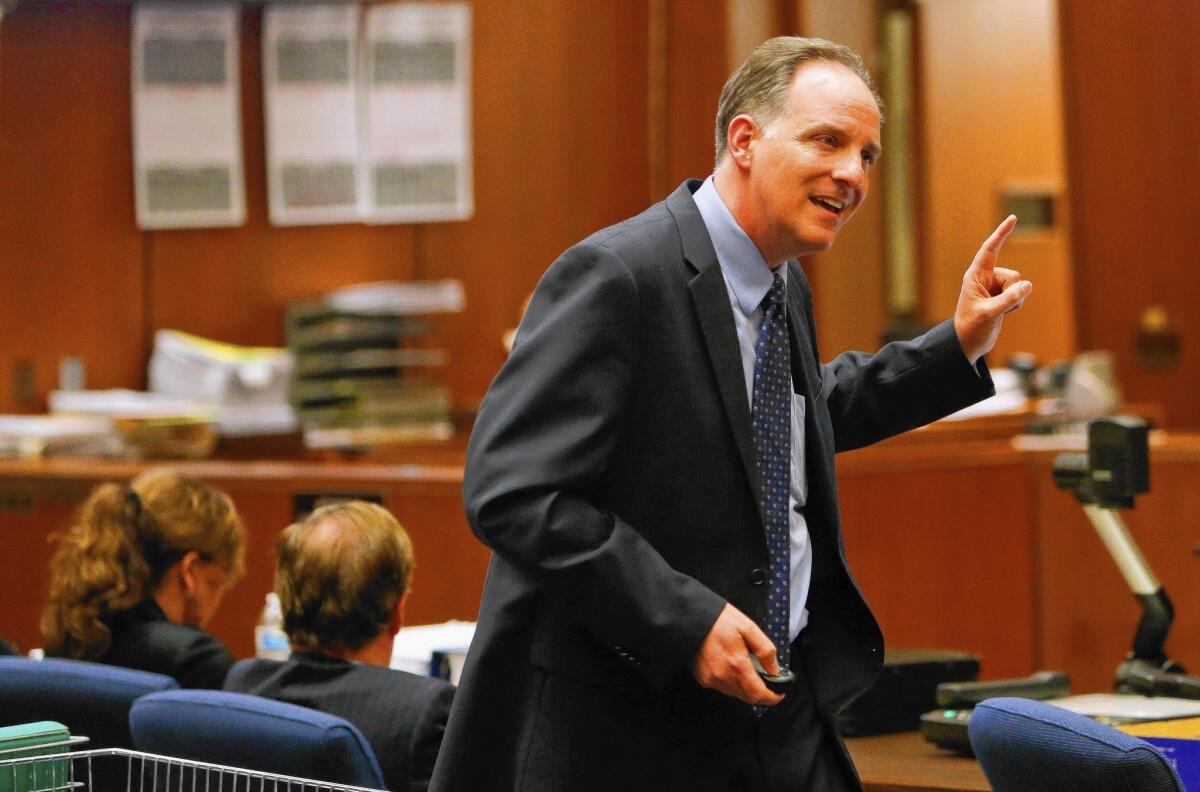Sheriff’s inspector general wants to dump civilian monitors

The new inspector general for the Los Angeles County Sheriff’s Department is recommending that the county cut off its contracts with two longtime civilian monitoring agencies, concluding they had only limited success in helping the troubled department.
If the board accepts his recommendations, it would mark the end of relationships with two of the nation’s most widely respected police monitors.
The inspector general, former prosecutor Max Huntsman, said that both Michael Gennaco and Merrick Bobb had their successes and were supported by well-intentioned staffers. But he said their bureaucratic structures and limited resources kept them from succeeding.
“Its impact was limited,” Huntsman said of Gennaco’s Office of Independent Review, adding that the organization “functioned primarily as a part of the Sheriff’s Department” instead of an independent entity.
“The office has had an attorney-client relationship with the Sheriff, was housed within the Department, and assumed an integral role in the disciplinary system,” the letter said. “This model has created the perception that OIR is not sufficiently independent to act as a civilian monitor. This perception is not entirely without basis.”
Huntsman said that Bobb was provided with limited staff and tasked with preparing reports on “spot issues” and therefore “had no ability to monitor the department generally.”
Bobb, he said, had “little direct relationship with the Department” and in recent years his “influence has waned.”
In an interview with The Times, Huntsman said he had no plans to hire Bobb or Gennaco into his budding organization and didn’t think they were interested anyway.
The creation of an inspector general’s office was recommended by the blue ribbon commission created by the county after the sheriff’s jail abuse scandal.
Amid that scandal and others, the department’s two watchdogs came under scrutiny. The question was how such serious problems could fester under their watch.
The commission’s investigators found that neither monitor regularly analyzed data that tracks violent encounters between deputies and inmates or examined how the department handled inmate complaints. And when the watchdogs did uncover major problems in the jails, the investigators found, the Sheriff’s Department failed to carry out some of the recommended reforms.
In an interview Tuesday, Gennaco defended his organization and disputed Huntsman’s assertion that his organization’s lack of independence affected what he reported to the public.
“I don’t see any examples of how our reporting has been limited in effectiveness,” Gennaco said. “I don’t think there’s another oversight commission that has as much information or criticisms as we do. I would challenge him to find one that does.”
Bobb did not immediately respond to a request for comment.
Huntsman said he is not planning to work with sheriff’s officials on individual discipline cases the way Gennaco’s organization did. He said he would rather take a more systemic approach and stay out of individual cases so that he can report his opinion on those that are mishandled without a conflict of interest.
However, in his letter he mentioned the possibility of the Sheriff’s Department hiring some of Gennaco’s attorneys to fill that role in order to advise sheriff’s officials in determining appropriate discipline on a case-by-case basis. He said the organization’s attorneys have had a positive effect on encouraging thorough misconduct investigations and appropriate discipline.
Even as he recommended cutting his contract, Hunstman also complimented Bobb, saying he provided an “invaluable” outside perspective, including pushing for a database that tracks deputy discipline.
Huntsman’s organization will be made up of more than 20 staffers and is still in the hiring phase.
robert.faturechi@latimes.com
More to Read
Sign up for Essential California
The most important California stories and recommendations in your inbox every morning.
You may occasionally receive promotional content from the Los Angeles Times.










